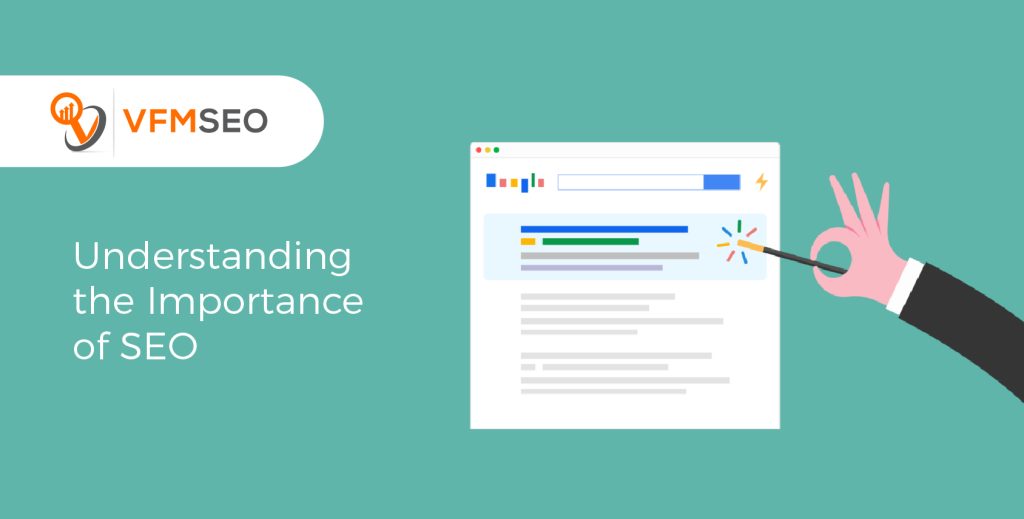
Hire SEO Services: Unlocking Digital Growth Opportunities
The role of search engine optimization (SEO) in the success of online businesses cannot be overstated. As the internet continues to evolve, it has become increasingly important for businesses to establish a strong online presence in order to reach their target audience effectively. This is where hiring SEO services becomes crucial.
In this article, we will explore the importance of SEO and how it can significantly impact the visibility and ranking of a website in search engine results pages (SERPs). Furthermore, we will delve into the process of identifying the target audience and conducting keyword research to optimize website content.
Additionally, we will discuss both on-page and off-page optimization techniques to enhance a website’s online visibility. By understanding the significance of SEO and implementing effective strategies, businesses can increase their online visibility, attract more targeted traffic, and ultimately, improve their overall success in the digital marketplace.
Understanding the Importance of SEO

Understanding the importance of SEO is crucial for businesses seeking to establish a strong online presence and effectively reach their target audience.
SEO, or Search Engine Optimization, is a set of practices aimed at improving a website’s visibility and ranking on search engine results pages (SERPs).
By implementing SEO best practices, businesses can reap numerous benefits and stay up-to-date with the latest SEO trends.
One of the primary benefits of SEO is increased organic traffic. When a website ranks higher on SERPs, it attracts more visitors, resulting in a higher likelihood of conversions and sales.
Furthermore, SEO helps businesses target specific keywords related to their products or services, increasing the chances of reaching their intended audience.
SEO also plays a crucial role in improving user experience. By optimizing website speed, mobile responsiveness, and overall site structure, businesses can enhance user satisfaction and encourage longer browsing sessions. This, in turn, positively impacts search engine rankings, as search engines prioritize websites that provide a positive user experience.
Staying updated with SEO trends is equally important. Search engines continuously evolve their algorithms to provide users with the most relevant and high-quality search results. By keeping up with these trends, businesses can adapt their SEO strategies accordingly, ensuring they remain competitive in the online landscape.
To maximize the benefits of SEO, businesses should implement SEO best practices. Some key practices include conducting thorough keyword research, creating high-quality and relevant content, optimizing on-page elements such as meta tags and headings, and building high-quality backlinks.
Understanding the importance of SEO is vital for businesses looking to establish a strong online presence. By leveraging SEO benefits, staying abreast of SEO trends, and implementing SEO best practices, businesses can effectively reach their target audience, increase organic traffic, and improve user experience.
Identifying Your Target Audience

Identifying the target audience is crucial in order to effectively tailor marketing strategies and maximize the reach and impact of the online presence. Customer segmentation, market analysis, and buyer persona are important tools that can aid in this process.
Customer segmentation involves dividing a larger target market into smaller, more defined groups based on characteristics such as demographics, behavior, and preferences. By understanding the different segments within a target audience, businesses can create more personalized and targeted marketing campaigns. This allows them to address the specific needs and interests of each segment, ultimately increasing the chances of attracting and retaining customers.
Market analysis plays a vital role in identifying the target audience. It involves gathering and analyzing data about the market, industry trends, and competitors. This information helps businesses understand the current market landscape and identify potential opportunities. By conducting thorough market analysis, businesses can identify gaps in the market and tailor their marketing strategies to effectively reach their target audience.
Creating a buyer persona is another effective way to identify the target audience. A buyer persona is a fictional representation of the ideal customer. It includes details such as demographics, interests, goals, and challenges. By creating a buyer persona, businesses can better understand the motivations, needs, and preferences of their target audience. This information can then be used to develop marketing strategies that resonate with the target audience and drive engagement and conversions.
Identifying the target audience through customer segmentation, market analysis, and buyer persona is crucial for businesses to create effective marketing strategies. By understanding the specific needs and preferences of their target audience, businesses can tailor their online presence and maximize their reach and impact.
Conducting Keyword Research

Conducting keyword research is a systematic process that involves analyzing and selecting the most relevant and valuable keywords for optimizing online content and improving search engine rankings. This process is essential for businesses looking to enhance their online presence and attract a targeted audience.
One of the first steps in keyword research is conducting a competitive analysis. This involves analyzing the keywords that competitors are targeting and determining their effectiveness in driving traffic and generating leads. By understanding what keywords competitors are using, businesses can identify opportunities to differentiate themselves and target keywords that may be less competitive.
Another aspect of keyword research is identifying long tail keywords. These are longer and more specific keyword phrases that typically have lower search volumes but higher conversion rates. Long tail keywords allow businesses to target a niche audience and attract highly relevant traffic to their website. Moreover, long tail keywords often have less competition, making it easier for businesses to rank higher in search engine results pages.
Additionally, keyword difficulty analysis is crucial in determining the competitiveness of keywords. This analysis involves evaluating the difficulty of ranking for specific keywords based on factors such as search volume, competition, and the authority of competing websites. By understanding keyword difficulty, businesses can focus their efforts on keywords that are more attainable and have a higher likelihood of ranking well.
Conducting keyword research is a vital step in optimizing online content and improving search engine rankings. By performing a competitive analysis, identifying long tail keywords, and analyzing keyword difficulty, businesses can select the most relevant and valuable keywords to target. This will ultimately increase their visibility, attract their target audience, and drive organic traffic to their website.
On-Page Optimization Techniques
Implementing on-page optimization techniques involves strategically optimizing various elements of a webpage, such as meta tags, headings, and content, in order to enhance its relevance and visibility in search engine results pages.
One crucial aspect of on-page optimization is the website structure. A well-organized and logically structured website not only provides a positive user experience but also helps search engines understand the content and relevance of each page. This can be achieved by creating a clear hierarchy and using descriptive URLs, which include relevant keywords.
Meta tags also play a significant role in on-page optimization. These tags provide information about the webpage to search engines and website visitors. The title tag, for example, appears as the clickable headline in search engine results and should be crafted to accurately describe the content of the page while incorporating relevant keywords. Additionally, the meta description tag provides a brief summary of the webpage and should be enticing to users, encouraging them to click through to the website.
Content optimization is another essential on-page technique. This involves creating high-quality, relevant, and engaging content that incorporates targeted keywords. Keyword research helps identify the most relevant and popular terms to include in the content, ensuring that it aligns with the user’s search intent. It is important to strike a balance between optimizing for search engines and providing valuable information for human readers.
On-page optimization techniques, including website structure, meta tags, and content optimization, are crucial for improving a webpage’s visibility and relevance in search engine results pages. By strategically optimizing these elements, website owners can increase their chances of ranking higher in search engines and attracting more organic traffic.
Off-Page Optimization Strategies
Off-page optimization strategies involve building a network of high-quality backlinks, establishing a strong online presence, and engaging with relevant communities and influencers to improve a website’s authority and credibility in the digital landscape.
Link building strategies play a crucial role in off-page optimization. By acquiring backlinks from reputable and authoritative websites, a website can enhance its visibility and improve its search engine rankings. This can be achieved through various techniques such as guest blogging, creating valuable and shareable content, and participating in online forums and directories.
Social media promotion is another essential aspect of off-page optimization. By leveraging social media platforms, website owners can increase brand awareness, drive traffic to their websites, and enhance their online reputation. Sharing valuable content, interacting with followers, and utilizing social media advertising can significantly boost a website’s visibility and engagement.
Influencer outreach is also a key off-page optimization strategy. Collaborating with influencers who have a significant following and expertise in a particular niche can help generate high-quality backlinks and increase brand exposure. Influencers can promote a website or its products/services through sponsored content, reviews, or endorsements, thereby attracting a wider audience and enhancing the website’s credibility.
Overall, off-page optimization strategies play a vital role in improving a website’s authority, credibility, and visibility in the digital landscape. By implementing effective link building strategies, leveraging social media promotion, and engaging with relevant influencers, website owners can enhance their online presence and attract organic traffic, resulting in improved search engine rankings and increased conversions.
FAQs
What is the cost of hiring SEO services?
SEO service pricing can vary depending on factors such as the competitiveness of the industry, the scope of services required, and the reputation of the SEO provider. It is possible to find affordable SEO services that meet specific business needs.
How long does it take to see results from SEO efforts?
The timeframe for seeing results from SEO efforts varies depending on various factors such as website age, competition, and SEO strategies employed. Measuring success in SEO is typically done through key performance indicators and analytics.
Can SEO services guarantee first-page rankings on search engines?
SEO services cannot guarantee first-page rankings on search engines. Success depends on various factors, such as competition, website quality, and search engine algorithms. Implementing effective SEO strategies and following SEO best practices can improve organic ranking over time.
Do SEO services include content creation and website design?
SEO services typically include content creation and website design as part of their overall strategy. This involves developing a content strategy that focuses on keyword research and optimizing the website’s user experience to improve search engine rankings.
How often should SEO services be maintained or updated?
The regularity of SEO updates and the importance of SEO maintenance are crucial for optimizing SEO strategies. It is necessary to consistently update and maintain SEO services to ensure the effectiveness and competitiveness of a website.
Conclusion
It is crucial to recognize the significance of SEO in today’s digital landscape.
By understanding the importance of targeting the right audience and conducting thorough keyword research, businesses can optimize their websites and improve their online visibility.
Implementing effective on-page optimization techniques and off-page optimization strategies will further enhance their search engine rankings and attract more organic traffic.

